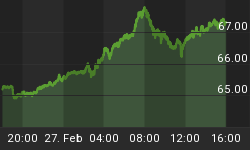Nowadays, a casual scan of the headlines can fool someone into thinking that the ongoing trade war between the U.S. and China is all about tariffs and counter-tariffs. After all, president Trump has in the past christened himself the “Tariff Man” whose role is to collect billions of dollars in extra trade levies and “make America rich again”. Even an earlier tentative trade deal between Trump and president Xi Jinping centered on tariffs on things like automobiles.
Yet, last year’s unexpected arrest of a Chinese telecom executive on Canadian soil should have served as warning that a second U.S.-China trade war was brewing—a much stealthier confrontation fought with much subtler weapons than mere tariffs.
The prize—domination of the all-important information technology industry.
And, the U.S. is showing no signs of relenting after pressing charges against Huawei Technologies Co. CFO Meng Wanzhou, daughter of Huawei founder and president Ren Zhengfei, and demanding her extradition to the U.S.
Huawei is China’s largest tech company. It’s still too early to say definitively but the feeling is that Meng is likely to suffer a worse fate than the two Chinese intelligence officers for whom the U.S. DoJ recently issued warrants against for hacking 45 American company databases.
Escalating Tensions
The charges filed on Monday mark a new twist in the ongoing trade war between the two countries and an escalation of tensions between the two protagonists just days after resuming negotiations in the countdown to the 90-day trade war truce.
The 13-count indictment alleges, among other charges, that Ms. Meng engaged in bank and wire fraud and conspiracy with businesses in Iran. Separate charges filed in Washington accuse Huawei of stealing trade secrets from T-Mobile USA Inc. and paying bonuses to employees who succeeded in stealing trade secrets from rival companies.
According to Christopher Wray, director of the Federal Bureau of Investigations, the two cases expose Huawei’s “…brazen and persistent attempts to exploit American companies and financial institutions”. Canada’s Justice Department has already confirmed receiving an extradition request for Meng though Huawei has maintained its earlier stance of no wrongdoing in either case.
As expected, the Chinese government has defended Huawei and demanded the immediate revocation of Meng’s arrest warrant. Beijing has accused the U.S. of trying to curtail the rise of its tech and IT sector and demanded that it stops unreasonably targeting Huawei and other Chinese enterprises.
Huawei in Trouble
Huawei Smartphone Sales 2010-2018 (millions of units)
From relative obscurity less than a decade ago, Huawei has risen quickly through the years to become China’s biggest smartphone company. Unlike companies like Xiaomi which seem unable to shake off their reputation as manufacturers of cheap iPhone knockoffs, Huawei’s brands are regarded as higher-end and have generally been well received across global markets.
Related: Private Firms Spent Record $93 Billion On Natural Resources
During the last quarter, the company shipped 200 million units mainly driven by the company’s high-flying P20 series and its Honor brand which target online-savvy younger shoppers. Huawei is now the world’s second-largest smartphone manufacturer behind only Samsung. Other than making and selling smartphones, Huawei also maintains its roots as a provider of mobile technology to other smartphone and wi-fi companies.
But as if often the case, resounding success often comes at a steep price. In Huawei’s case it has taken the form of controversy, mistrust and even outright rejection. In February 2018, heads of the FBI, CIA and the NSA warned American citizens against using products by Huawei and ZTE on fears that Beijing was using their hardware to spy on American people and companies.
While Huawei has maintained that it’s an independent company with no links to the Beijing government, it’s hard to escape its provenance as the brainchild of a man with deep roots in military technology. In the 1980s, Huawei founder, Ren Zhengfei, served as an engineer in the Chinese People's Liberation Army, the armed force of the Communist Party of China that has ruled the country since 1921. The U.S. government has exhibited growing hostility to the company and even branded it as being “…effectively an arm of the Chinese government”.
Yet, fear of China’s most powerful tech company is nothing new, really. As early back as 2012, the U.S. congressional panel warned that the company, together with rival ZTE, posed a security threat. Both Australia and New Zealand have excluded Huawei from supplying their 5G gear again on fears that the company could be spying on them. Earlier this month, Vodafone paused the use of the company’s equipment over similar concerns. In 2018, the UK released a report that gave “only limited assurances” that Huawei was not a threat to national security—not exactly a glowing endorsement either. You can find a complete timeline of countries’ beef with Huawei here.
A complete ban on Huawei doing business with the likes of Qualcomm could spell disaster for the company—if ZTE’s recent ban is any indication.
What Now?
Canada’s justice minister has just 30 days to assess the extradition request and issue authority to proceed with hearings. The country won’t have much leeway to turn the request down assuming the crimes committed by Meng also violate Canadian law. A hearing, though, could still be months away and the decision on the date of extradition will be left to the justice minister assuming Meng losses her appeals. A damning static—Canadian authorities typically approve 90 percent of extradition requests mainly because the Canadian system makes it near-impossible to mount a defense.
One thing’s for sure: the Huawei case throws a spanner in already fragile trade negotiations making it even harder for the two countries to reach a comprehensive or durable deal. You can also be sure that Huawei will not be the only Chinese tech company targeted as Trump looks to end China’s decades-long practice of arm-twisting American tech companies and forcing them to divulge key trade secrets as a ticket to gaining access to the huge market.
By Alex Kimani for Safehaven.com
More Top Reads From Safehaven.com
















